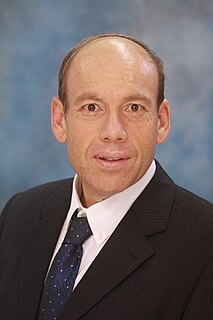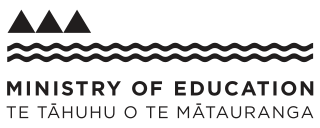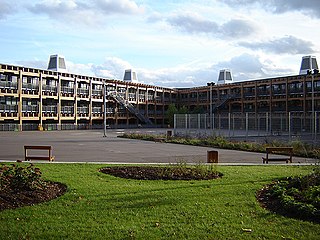Related Research Articles

The State Comptroller of Israel supervises and reviews the policies and operations of the government of the State of Israel. The incumbent is independent of the government and answers to the Knesset alone.

The Ministry of Education is the public service department of New Zealand charged with overseeing the New Zealand education system.

An academy school in England is a state-funded school which is directly funded by the Department for Education and independent of local authority control. The terms of the arrangements are set out in individual Academy Funding Agreements. Most academies are secondary school. However, slightly more than 25% of primary schools, as well, as some of the remaining first and middle schools, are also academies.

Education in Bangladesh is overseen by the country's Ministry of Education. The Ministry of Primary and Mass Education is responsible for implementing policy for primary education and state-funded schools at a local level. In Bangladesh, all citizens must undertake twelve years of compulsory education which consists of eight years at primary school level and four years at high school level. Primary and secondary education is financed by the state and free of charge in public schools.

The Chartered Quality Institute (CQI), formerly known as The Institute of Quality Assurance (IQA), is the chartered body for quality professionals. It improves the performance of organisations by developing their capability in quality management. As a registered charity, the CQI exists to advance education in, knowledge of and the practice of quality in the industry, the public sector and the voluntary sectors.
Members of Parliament Local Area Development Scheme (MPLADS) is a scheme formulated by Government of India on 23 December 1993 that enables the members of parliaments (MP) to recommend developmental work in their constituencies with an emphasis on creating durable community assets based on locally felt needs.

Sayed Ashraful Islam was a Bangladesh Awami League politician. He was the General Secretary of the Bangladesh Awami League party. He served as a member of parliament and minister of public administration of the Government of Bangladesh. Islam also served for a time as Minister of Local Government and Rural Development.

Abul Maal Abdul Muhith, is a Bangladeshi economist, diplomat and politician who served as country's Finance Minister from January 2009 till December 2018.
Ministry of Education, abbreviated as MoE, is the ministry responsible for secondary, vocational and tertiary education in Bangladesh. Primary education and mass literacy is the responsibility of the Ministry of Primary and Mass Education (MOPME). The Ministry of Education contains two divisions:
Bogura Polytechnic Institute or BPI is a Government Technical Institute in Bogura, Bangladesh. It is one of the largest polytechnic institutes in Bangladesh.

The Office of the Comptroller and Auditor General of Bangladesh (C&AG) is the Supreme Audit Institution (SAI) of the country. Like the SAIs in many other countries across the world the institution is established by the Constitution of Bangladesh. This institute is responsible for maintaining accounts of the republic and audits all receipts and expenditure of the Government of Bangladesh, including those of bodies and authorities substantially financed by the government. The reports of the CAG are discussed by the Public Accounts Committee, which is a standing committee in the Parliament of Bangladesh.
The Department for Education is a state government department delivering school education throughout the state. Education in Australia at school level is managed by each state, though the Commonwealth government makes a significant contribution. The Department was established through the Education Act of 1875 which allowed for the establishment of public schools and contained provisions for compulsory schooling of children aged between 7 and 13. As the state grew quickly into the 20th Century the Education Department expanded across the very large rural areas of the state. Post World War 2, rising birth rates, large scale immigration and increasing demand for secondary education led to very rapid growth in the Department. The number of Private schools grew in this period and with increasing State aid provided growing competition for the State education sector. In the post war period several of large reviews of education have taken place: in particular the Karmel and Keeves reviews. In 2017 there were 514 Schools and approximately 172,000 students within the Department.

Corruption in Bangladesh has been a continuing problem. According to all major ranking institutions, Bangladesh routinely finds itself among the most corrupt countries in the world.
Mymensingh Polytechnic Institute or MPI is a polytechnic institute in Mymensingh, Bangladesh, established in 1963.

Faridpur Polytechnic Institute, often abbreviated as FPI, is a government technical institute in Faridpur, Dhaka, Bangladesh. It is one of the oldest polytechnic institutes in Bangladesh.
Bangladesh Institute of Glass and Ceramics (BIGC) is the oldest and only institute of its kind in Bangladesh. The establishment of the institute dates back to 11 March 1951 named as “East Bengal Ceramics Institute”. In 1960 the institute was renamed “East Pakistan Institute of Glass and Ceramics (EPIGC)”. In 1971 Bangladesh emerged as an independent nation from Pakistan, the institute was again renamed as “Bangladesh Institute of Glass and Ceramics” in 1972. With the growing demands of Glass and Ceramics sector of mid-level technical manpower home and abroad three years Diploma in Ceramic Engineering was introduced in the year 1978 and Diploma in Glass Engineering was introduced in the year 2000. Duration of the Glass and Ceramic Engineering Course has changed to four years from the year 2000.
Cumilla Polytechnic Institute is a polytechnic institute in the city of Comilla, Bangladesh. It is one of the oldest and largest polytechnic institute in Bangladesh, and was established in 1962. This is the first government ICT based polytechnic institute for diploma engineering courses in the country.
A M Nurul Islam, also known as Nurul Islam Anu, was a Bangladeshi politician and bureaucrat. He started his career in the erstwhile Civil Services of Pakistan (CSP) in 1963 and joined the Government of Bangladesh after independence in 1971. He was the private secretary to former Prime Minister of Bangladesh Sheikh Mujibur Rahman. He has been the longest serving president of the US chapter of Bangladesh Awami League (1989-2002).

Non-Government Teachers' Registration and Certification Authority is a Bangladesh government regulatory agency under the Ministry of Education responsible for the registration and certification of teachers in private educational institutes under the government monthly pay order (MPO).
Jute Industry in Bangladesh is an industry that is historically and culturally important that once was the biggest industry in the region but has declined since then. Jute was historically a major export item of Bangladesh but has declined since the 1970s. Exports have fallen as other countries grew jute and alternate products like plastic and hemp found more widespread use. Bangladesh produces, as of 2018, 33 percent of the total worldwide production of jute.
References
- ↑ "Education inspector caught red-handed while taking bribe". The Daily Star. 30 May 2017. Retrieved 27 June 2019.
- ↑ "Corruption in education sector coming down: Nahid". The Daily Star. 25 December 2017. Retrieved 27 June 2019.
- ↑ "Menon for probe into trade over admission". The Daily Star. 15 June 2010. Retrieved 27 June 2019.
- ↑ "The Origin of the DIA". DIA. Retrieved 27 June 2019.